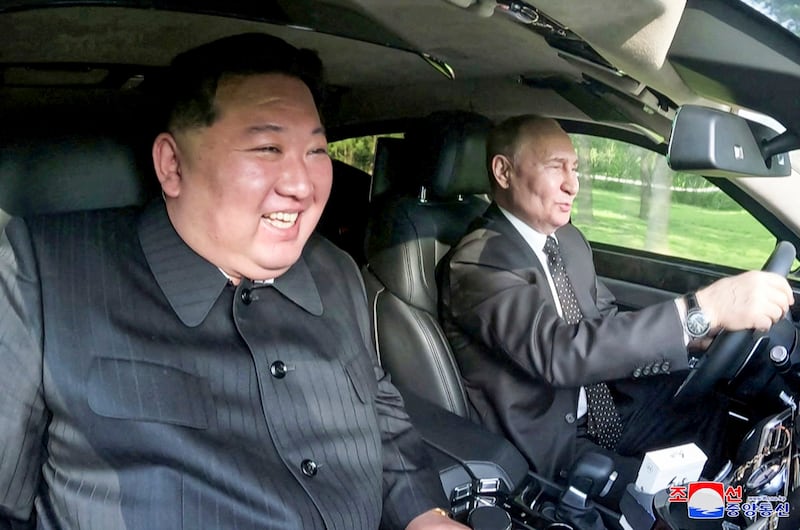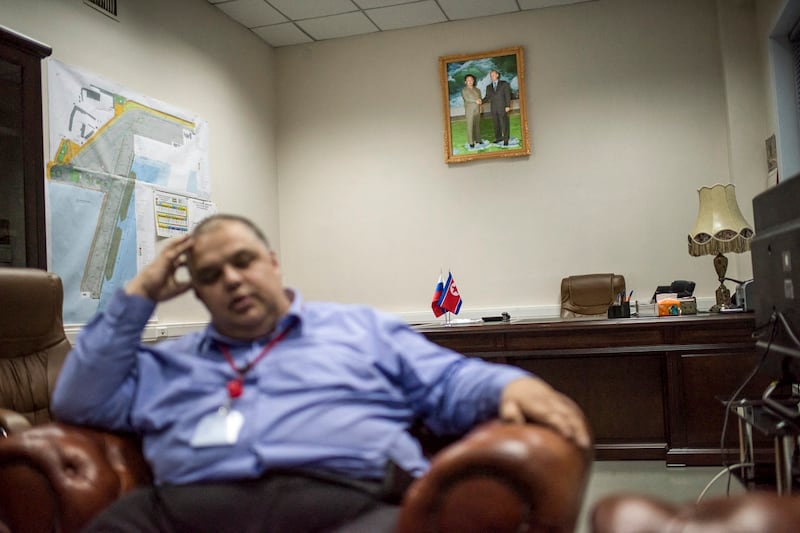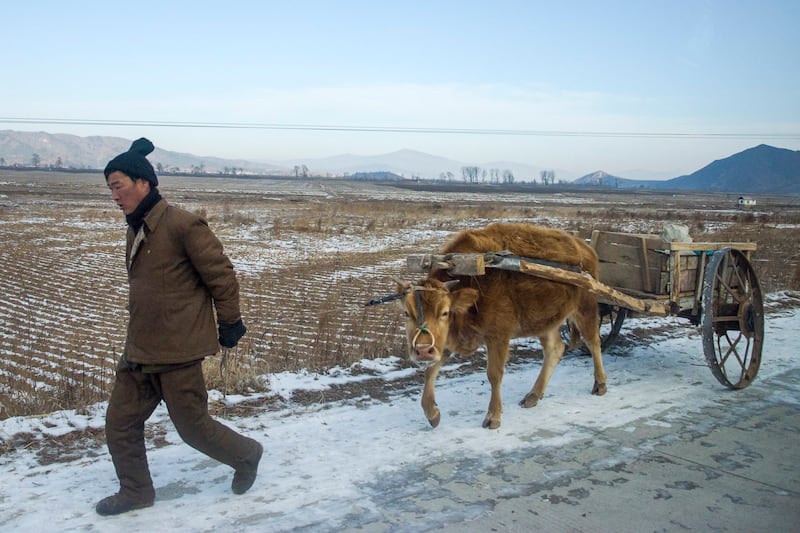North Korea and Russia plan to build a new road bridge connecting their countries over the Tumen River, which separates them in North Korea’s northeast.
The two sides agreed to the Tumen River Bridge plan during Russian President Vladimir Putin’s recent visit to Pyongyang on June 19.
North Korea is only connected on land to Russia by rail, so the new bridge would allow road traffic, meaning it would likely boost trade and tourism. Russian trucks and buses full of Russian tourists could travel across it, although roads need to be built on both sides to link it to existing roads.
Experts immediately made comparisons to the New Yalu River Bridge, a road bridge that connects North Korea and China in North Korea’s northwest.

Though that bridge was completed almost a decade ago, it still remains unopened, because the North Korean side has yet to install the proper infrastructure.
Road traffic between North Korea’s Sinuiju and China’s Dandong, the two major hubs in Sino-Korean trade, must settle for a single reversible lane on the aging Sino-Korean Friendship Bridge, which was built in 1943 towards the end of Japan’s colonial occupation of Korea and primarily handles rail traffic.
North Korea and Russia have been discussing road bridge construction since 2015, but talks ended in 2016 when North Korea conducted its fourth nuclear test.
Renewed closeness
Unlike the new bridge to China, North Korea’s renewed closeness to Russia makes it highly likely that the bridge to the Russian Far East will be completed and opened without much delay, Choi Eun-ju, a Research Fellow at the Sejong Institute in South Korea, told RFA Korean.
She said that even if war in Ukraine ends and Russia has less incentive to engage with North Korea, the two sides will likely remain close in the long term.
Related Stories
[ China agrees to finish bridge to North KoreaOpens in new window ]
[ North Korea installs electric fences around new bridge to ChinaOpens in new window ]
Choi said that Russia, which believes that the international order can change from a unipolar system centered on the United States to a multipolar system in the future, is actively trying to attract North Korea, while Pyongyang wants to gain practical benefits by increasing its presence through cooperation with Russia.
The agreement to build a land route to Russia is meaningful because unlike with China, there is no road to Russia, Kang Dongwan, a professor of political science at South Korea’s Dong-A University, told RFA.
“Since the agreement has been signed, regardless of the issue of whether to open the bridge later, it seems that Russia will naturally provide capital and begin construction,” he said. “Isn’t this the best time for North Korea-Russia relations for each other? So, we expect that such exchanges will definitely take place.”

Kang said the New Yalu River Bridge is an entirely different project and its problems should not affect the Tumen River Bridge, which he said will maximize the benefits between the two countries through trade and people-to-people exchanges.”
“I do not agree with the idea that construction can be stopped midway due to changes in international relations,” he said. “If we say that construction is not possible due to a lack of support from Russia or a breakdown in North Korea-Russia relations, we are greatly underestimating the relationship that North Korea and Russia have traditionally had.”
Different dynamics
North Korea expert Andrei Lankov, a professor at Kookmin University, told RFA that the relationship between Russia and North Korea is very different from that of China and North Korea.
“The reason North Korea opposed the completion of the New Yalu River Bridge in the past was because it was cautious due to a fear of Chinese interference and influence,” he said, adding that he felt the bridge would be built to completion.
The bridge will increase trade between Russia and North Korea, said Joung Eunlee, a research Fellow at Korea Institute for National Unification.

“Much more cargo can be actively transported than through railways, and people can also be transported,” she said. “Transportation time will be faster, and trade volume will increase.”
However, Lankov, who also writes a weekly column for RFA Korean, noted that the site of the Tumen River Bridge has no roads connected on the Russian side, and no paved roads on the North Koreans side. So he believes its effect on trade and movement of people in the short-term will be limited.
Send more workers?
Kang predicted that North Korea would push for dispatching more workers to Russia once the bridge is completed.
So far, North Korea has been limited in sending workers by rail or sea, but if it does so over the road, foreign currency earnings through human exchange will become more active, he said. North Korea requires its workers in other countries to send a hefty chunk of their earnings back to the government, which relies on these funds as a key source of revenue.

“What North Korea and Russia currently have in common is that Russia needs manpower during the war in Ukraine, and North Korea needs to earn foreign currency by exporting manpower,” he said. “Both of these issues are trapped within the framework of sanctions against North Korea.”
He said that both countries intend to overcome the constraints of sanctions, and the bridge would be a way to do that.
Translated by Claire S. Lee. Edited by Eugene Whong.
